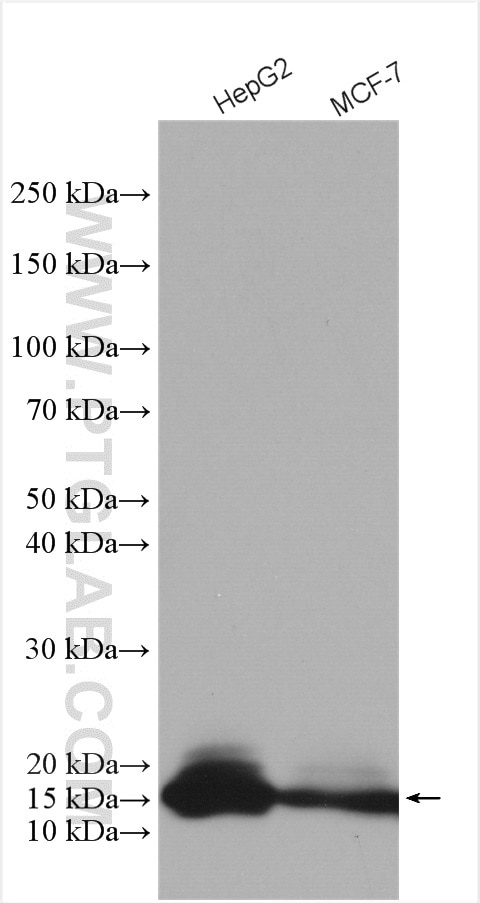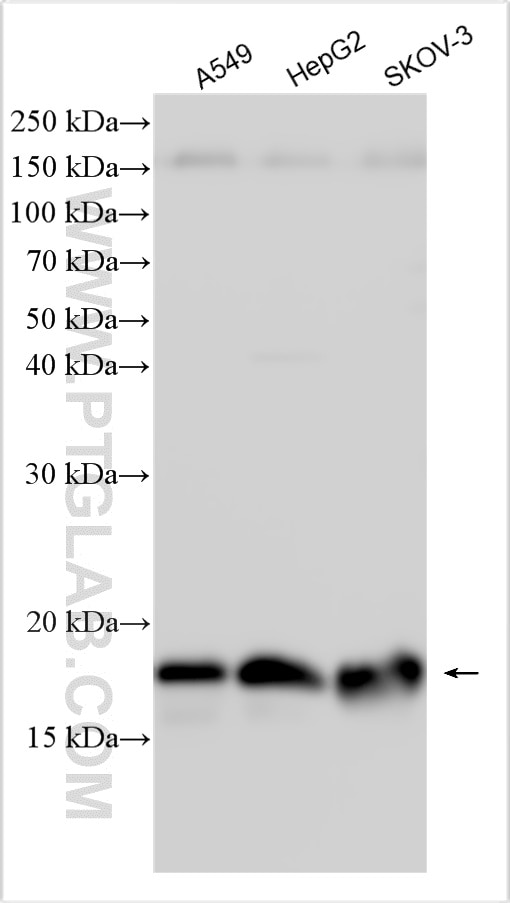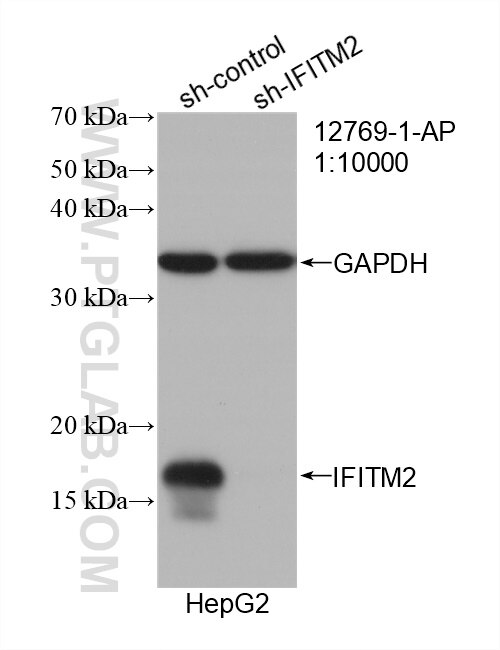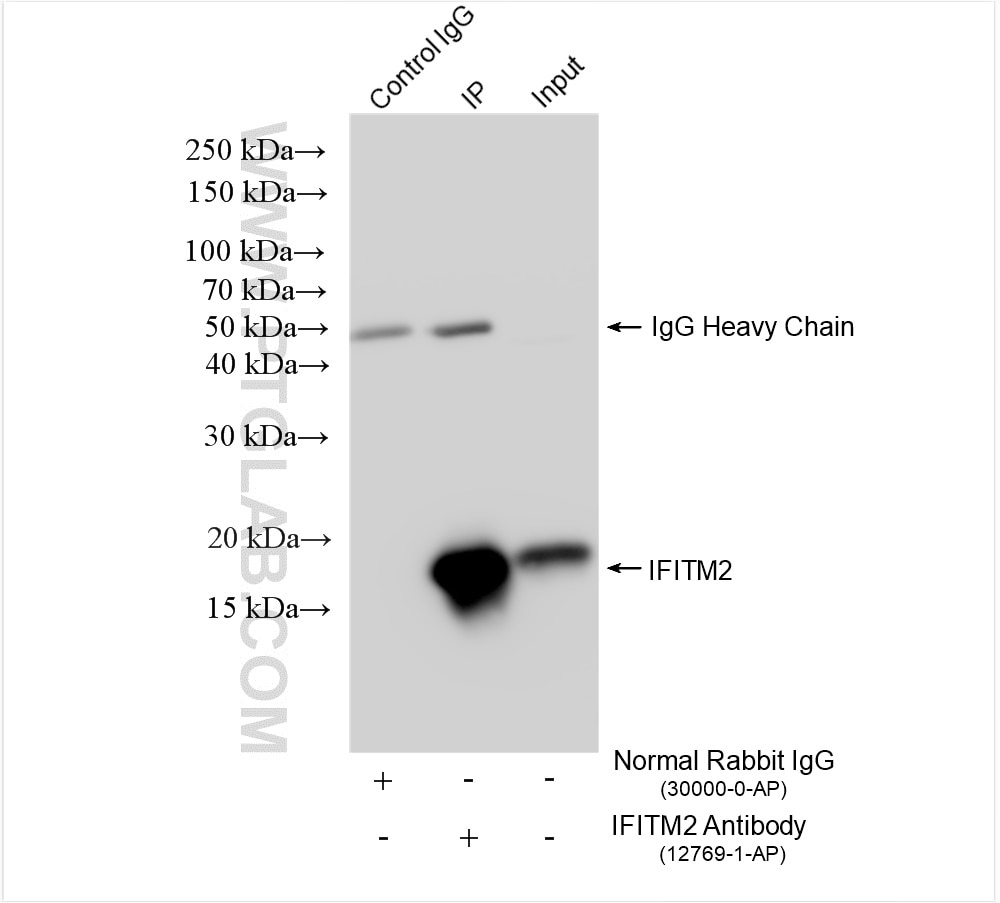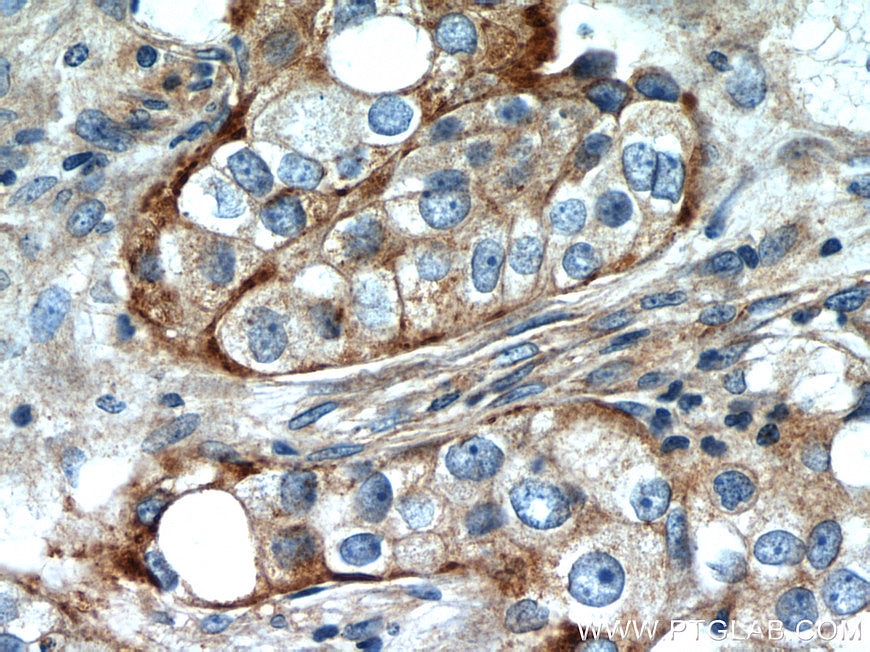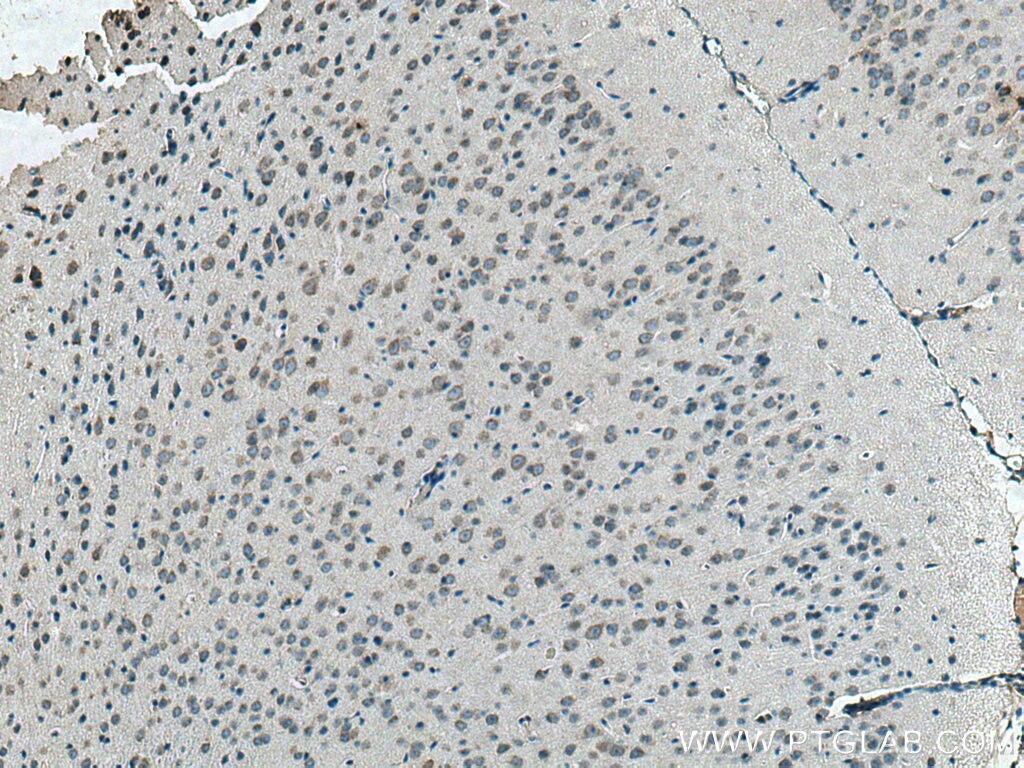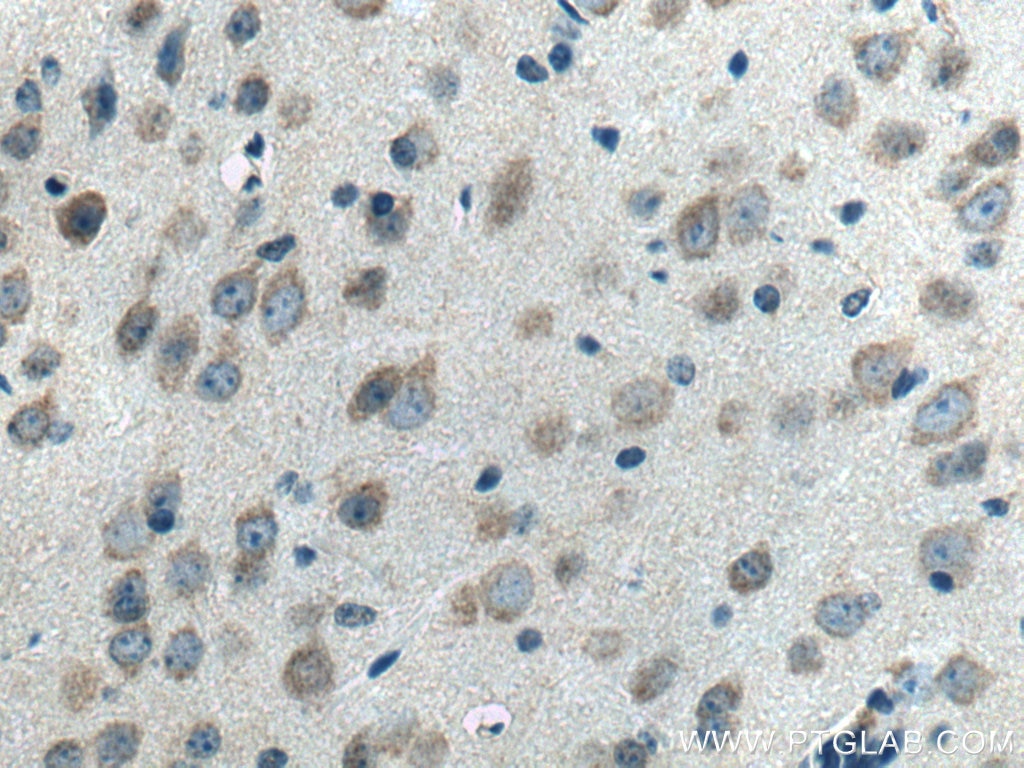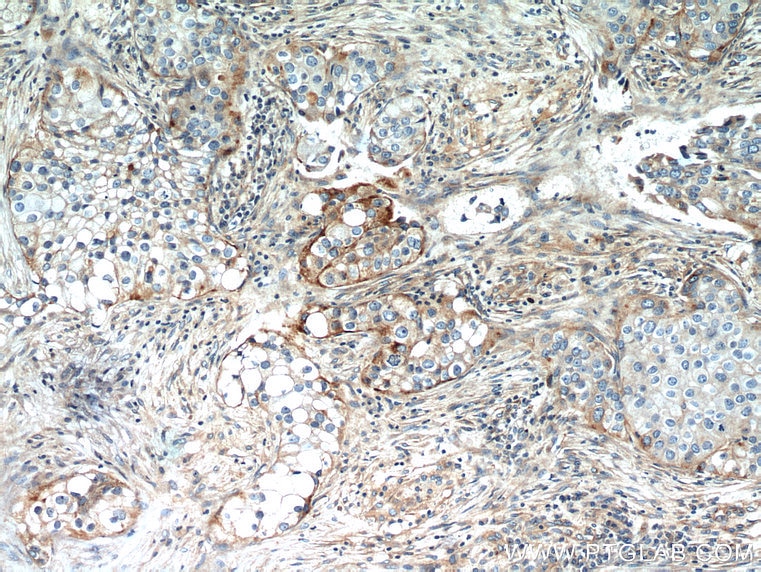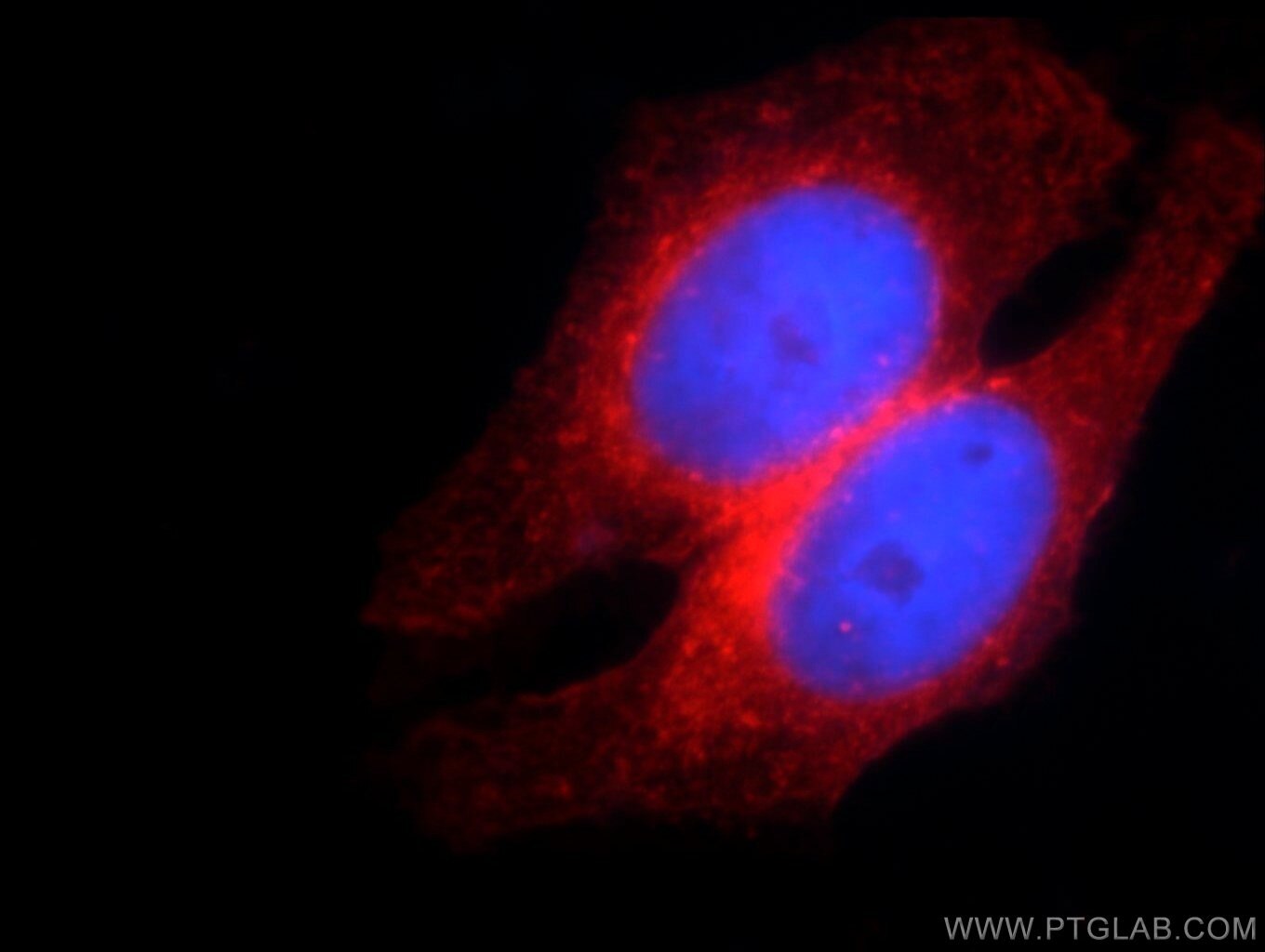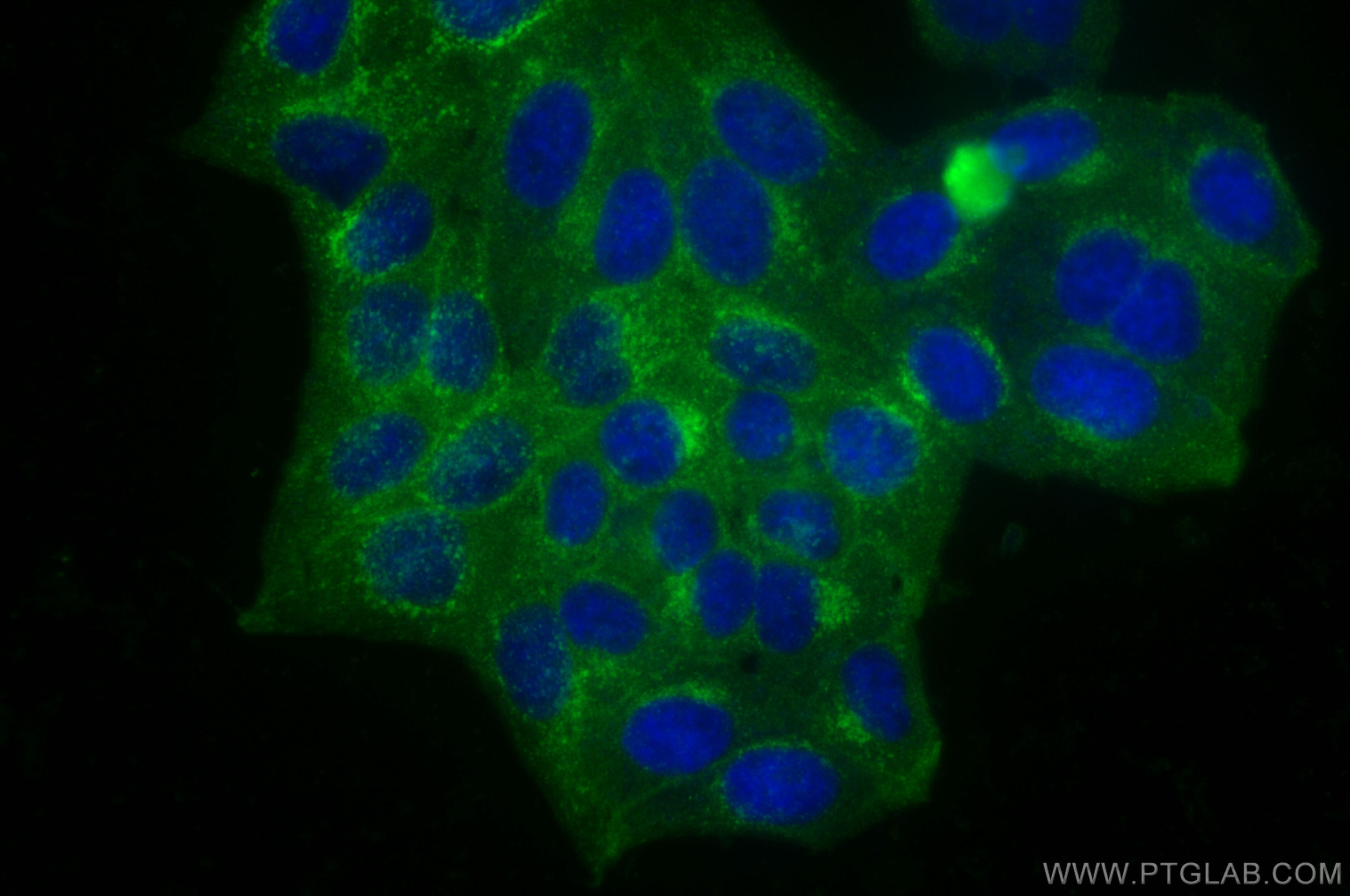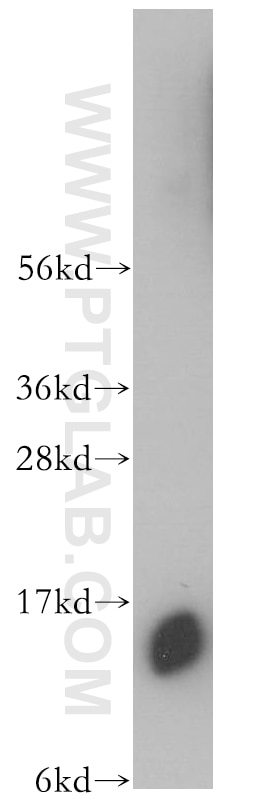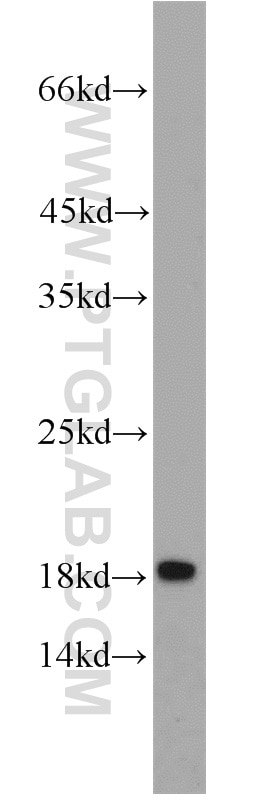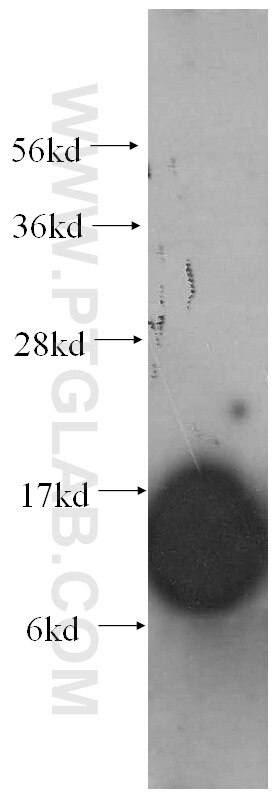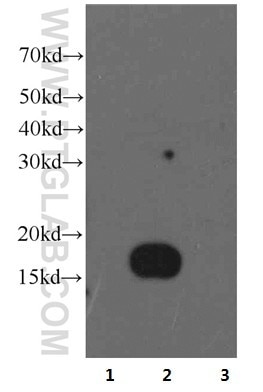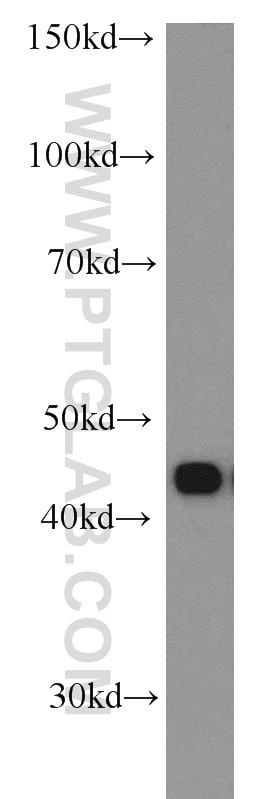- Featured Product
- KD/KO Validated
IFITM2 Polyklonaler Antikörper
IFITM2 Polyklonal Antikörper für WB, IHC, IF/ICC, IP, ELISA
Wirt / Isotyp
Kaninchen / IgG
Getestete Reaktivität
human, Maus und mehr (1)
Anwendung
WB, IHC, IF/ICC, IP, ELISA
Konjugation
Unkonjugiert
Kat-Nr. : 12769-1-AP
Synonyme
Galerie der Validierungsdaten
Geprüfte Anwendungen
| Erfolgreiche Detektion in WB | A549-Zellen, HepG2-Zellen, MCF-7-Zellen, SKOV-3-Zellen |
| Erfolgreiche IP | HepG2-Zellen |
| Erfolgreiche Detektion in IHC | humanes Mammakarzinomgewebe, Maushirngewebe Hinweis: Antigendemaskierung mit TE-Puffer pH 9,0 empfohlen. (*) Wahlweise kann die Antigendemaskierung auch mit Citratpuffer pH 6,0 erfolgen. |
| Erfolgreiche Detektion in IF/ICC | HepG2-Zellen |
Empfohlene Verdünnung
| Anwendung | Verdünnung |
|---|---|
| Western Blot (WB) | WB : 1:2000-1:10000 |
| Immunpräzipitation (IP) | IP : 0.5-4.0 ug for 1.0-3.0 mg of total protein lysate |
| Immunhistochemie (IHC) | IHC : 1:20-1:200 |
| Immunfluoreszenz (IF)/ICC | IF/ICC : 1:200-1:800 |
| It is recommended that this reagent should be titrated in each testing system to obtain optimal results. | |
| Sample-dependent, check data in validation data gallery | |
Veröffentlichte Anwendungen
| KD/KO | See 12 publications below |
| WB | See 33 publications below |
| IHC | See 1 publications below |
| IF | See 8 publications below |
| IP | See 1 publications below |
| FC | See 4 publications below |
Produktinformation
12769-1-AP bindet in WB, IHC, IF/ICC, IP, ELISA IFITM2 und zeigt Reaktivität mit human, Maus
| Getestete Reaktivität | human, Maus |
| In Publikationen genannte Reaktivität | human, Hausschwein, Maus |
| Wirt / Isotyp | Kaninchen / IgG |
| Klonalität | Polyklonal |
| Typ | Antikörper |
| Immunogen | IFITM2 fusion protein Ag3451 |
| Vollständiger Name | interferon induced transmembrane protein 2 (1-8D) |
| Berechnetes Molekulargewicht | 132 aa, 15 kDa |
| Beobachtetes Molekulargewicht | 15-17 kDa |
| GenBank-Zugangsnummer | BC009696 |
| Gene symbol | IFITM2 |
| Gene ID (NCBI) | 10581 |
| Konjugation | Unkonjugiert |
| Form | Liquid |
| Reinigungsmethode | Antigen-Affinitätsreinigung |
| Lagerungspuffer | PBS mit 0.02% Natriumazid und 50% Glycerin pH 7.3. |
| Lagerungsbedingungen | Bei -20°C lagern. Nach dem Versand ein Jahr lang stabil Aliquotieren ist bei -20oC Lagerung nicht notwendig. 20ul Größen enthalten 0,1% BSA. |
Hintergrundinformationen
IFITM2, also named as 1-8D, belongs to the CD225 family. It is an IFN-induced antiviral protein that mediates cellular innate immunity to at least three major human pathogens, namely influenza A H1N1 virus, West Nile virus (WNV), and dengue virus , by inhibiting the early steps of replication. IFITM2 induces cell cycle arrest and mediates apoptosis by caspase activation and in p53-independent manner. It is overexpressed in colon carcinoma. IFITM2 is a novel pro-apoptotic gene that will provide new insights into the regulated cellular pathways to death. IFITM proteins are recently identified as viral restriction factors that inhibit infection mediated by the influenza A virus (IAV) hemagglutinin (HA) protein. Also they serve as important components of the innate immune system to restrict HIV-1 infection. Catalog#12769-1-AP is a rabbit polyclonal antibody produced with full-length of human IFITM2.
Protokolle
| Produktspezifische Protokolle | |
|---|---|
| WB protocol for IFITM2 antibody 12769-1-AP | Protokoll herunterladen |
| IHC protocol for IFITM2 antibody 12769-1-AP | Protokoll herunterladen |
| IF protocol for IFITM2 antibody 12769-1-AP | Protokoll herunterladen |
| IP protocol for IFITM2 antibody 12769-1-AP | Protokoll herunterladen |
| Standard-Protokolle | |
|---|---|
| Klicken Sie hier, um unsere Standardprotokolle anzuzeigen |
Publikationen
| Species | Application | Title |
|---|---|---|
Cell The IFITM proteins mediate cellular resistance to influenza A H1N1 virus, West Nile virus, and dengue virus. | ||
Cell Host Microbe Resistance of Transmitted Founder HIV-1 to IFITM-Mediated Restriction.
| ||
Cell Host Microbe IFITM Proteins Incorporated into HIV-1 Virions Impair Viral Fusion and Spread.
| ||
Nat Commun IFITM3 restricts virus-induced inflammatory cytokine production by limiting Nogo-B mediated TLR responses | ||
Nat Commun BAG3 promotes pancreatic ductal adenocarcinoma growth by activating stromal macrophages.
|
